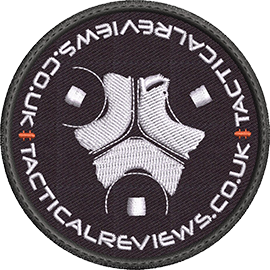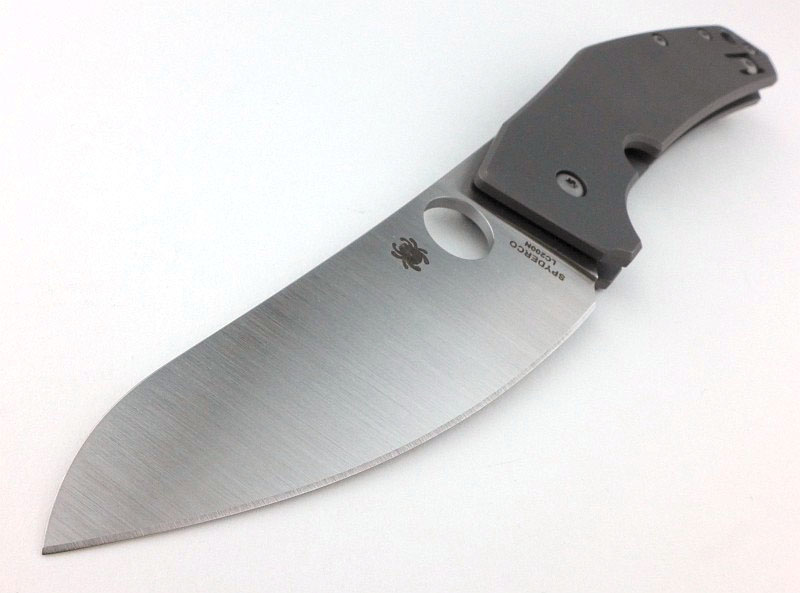Sometimes it’s all in a name… and ‘SpydieChef’ immediately lets you know this is a small (folding and EDC-able) Spyderco Chef’s knife. Of course it is a blend of exotic ingredients, made to that special Spyderco recipe, and is capable of so much more than just chopping a few vegetables. The SpydieChef is designed to deal with all-round EDC tasks as well as kitchen duties, is built using ultra-corrosion-resistant materials (it is a member of Spyderco’s Salt Series), and is finished to the high level of quality that we have come to expect in Spyderco products.
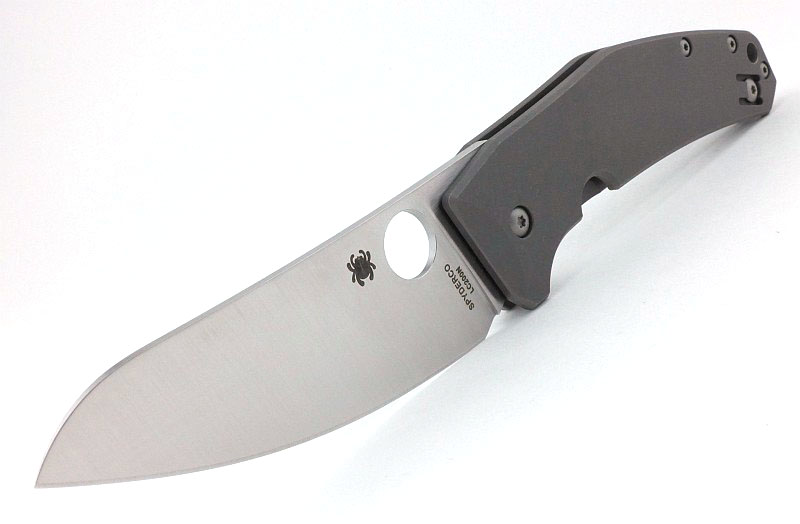
The Blade and Handle Geometry:
Most knife specifications have a basic description of the blade geometry, but in this section I will be taking a more detailed look at geometry and balance.
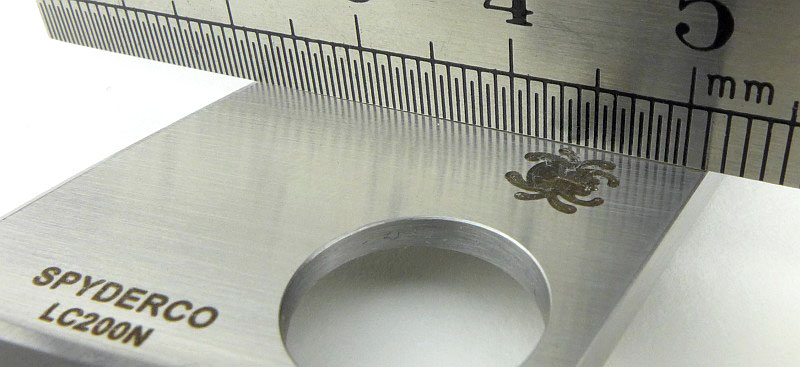
Using a set of gauges and precision measuring equipment including a Vernier protractor, callipers, fixed radius gauges and the unique Arc Master adjustable radius gauge (the one that looks like a crossbow).
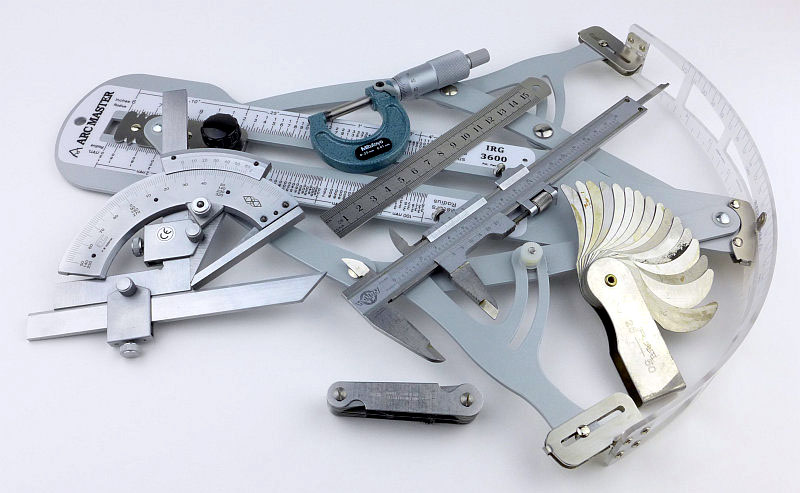
These measurements have been tabulated and are presented along with a few reference blades (8″ Chef’s Knife, 5.5″ Santoku and the popular Fällkniven F1).
Key aspects such as the primary bevel angle, grind type, blade depth, blade thickness, length, weight are detailed, along with balance information.
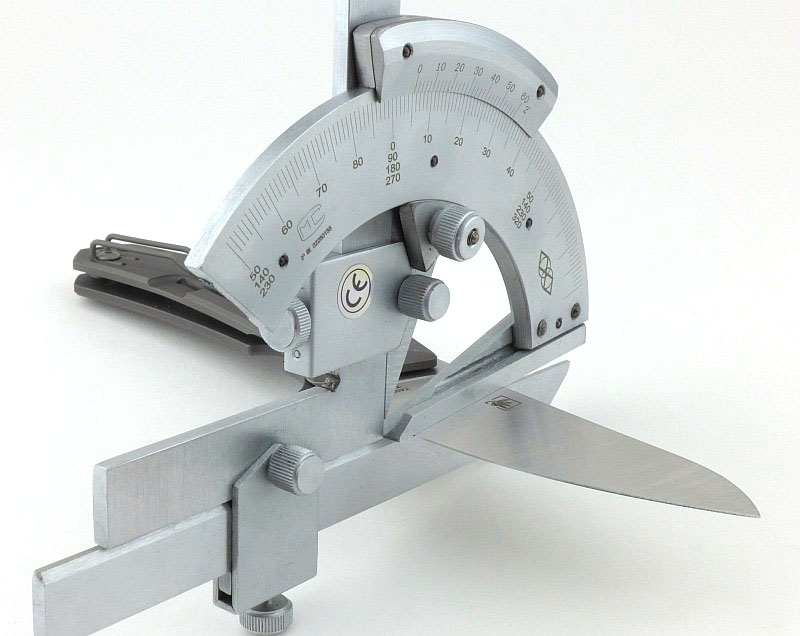
The ‘Balance relative to the front of the handle’ tells you if the knife will feel front heavy, or if the weight is in your hand (a positive value means the weight is forward of the front of the handle). The ‘Balance relative to the centre of the handle’ indicates how close to a ‘neutral balance’ the knife has in the hand.

In the case of full convex grinds the approximate centre of the grind is used for the primary bevel angle estimate.
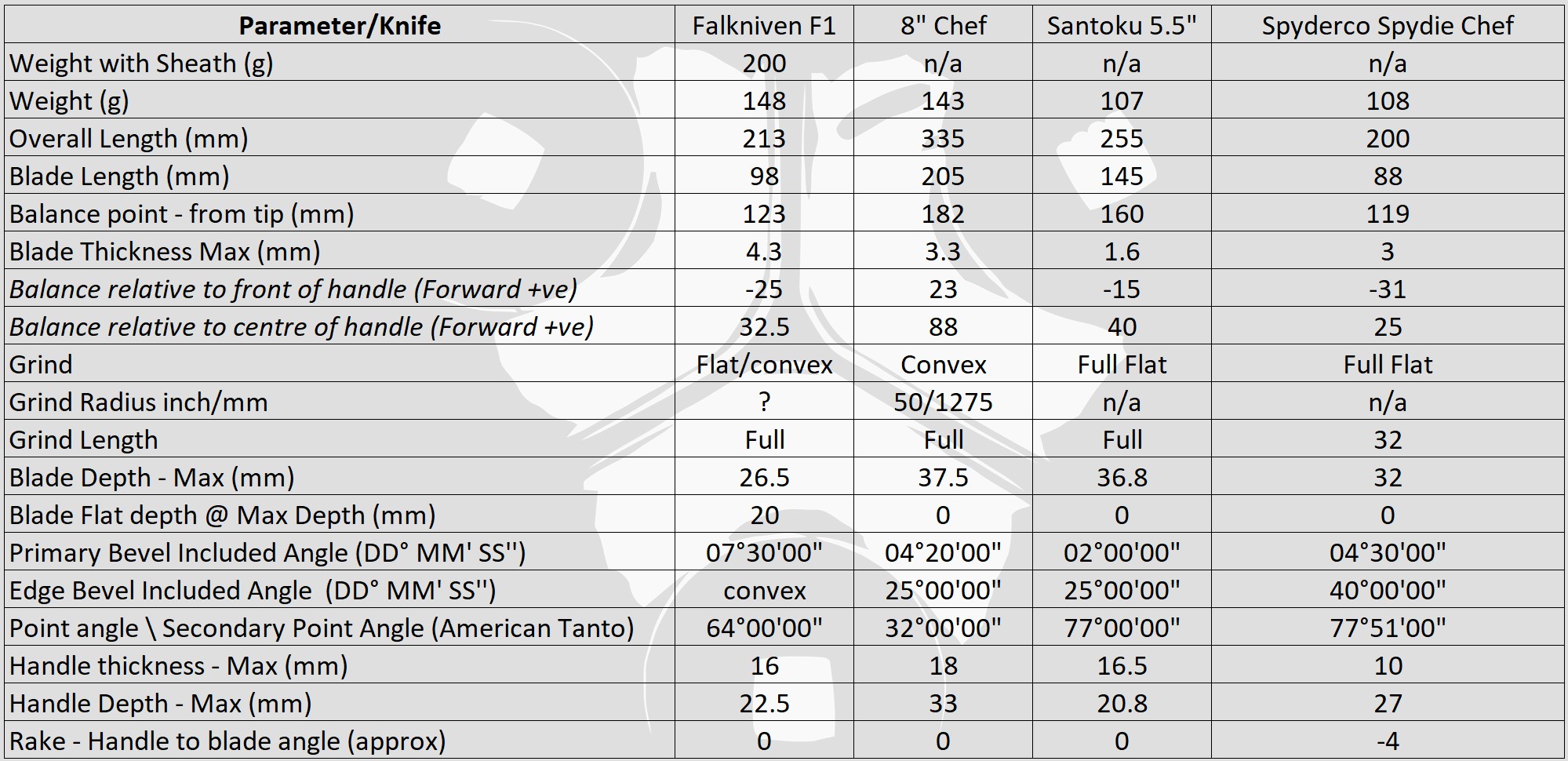
The blade is made from LC200N steel, a state-of-the-art nitrogen-based alloy, which is extremely corrosion resistant and is actually used by NASA for the ball bearings used in aerospace applications.
A few more details:
Spyderco’s standard sleeve box is used for the SpydieChef.
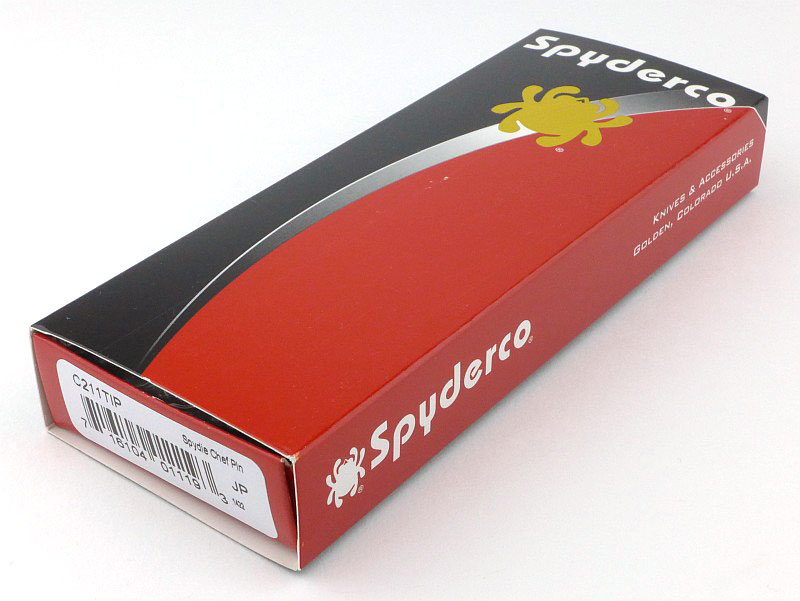
Inside the box the knife comes in a bubble wrap bag along with a product information leaflet.
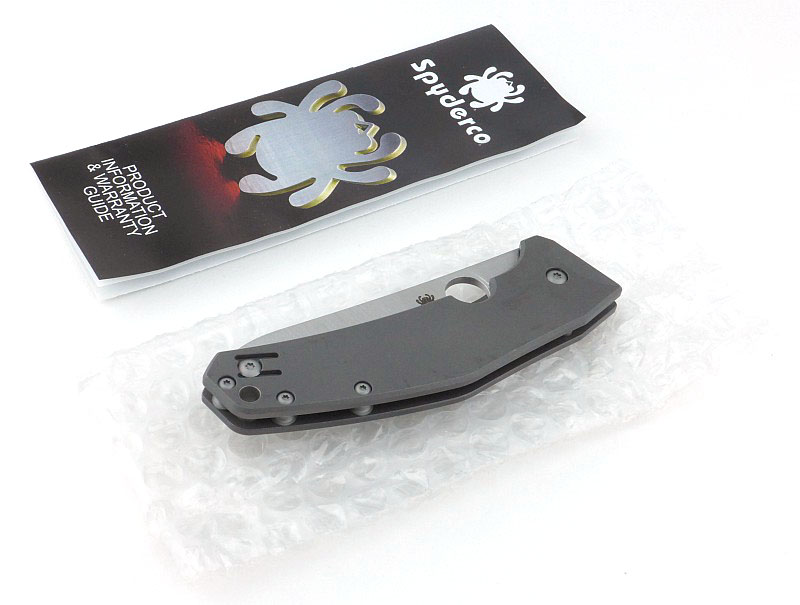
Let’s just take a moment to appreciate those lines…
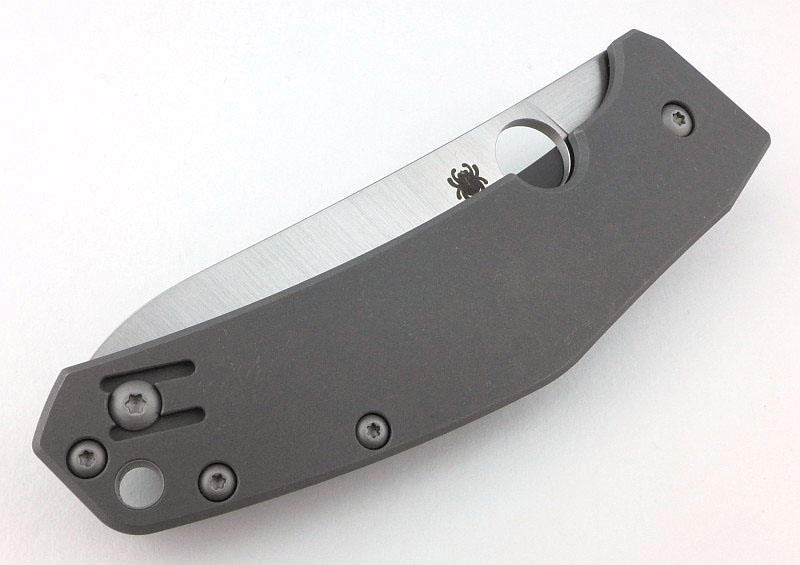
Using flat Titanium handles and a Reeve Integral Lock keeps the design streamlined and simple.
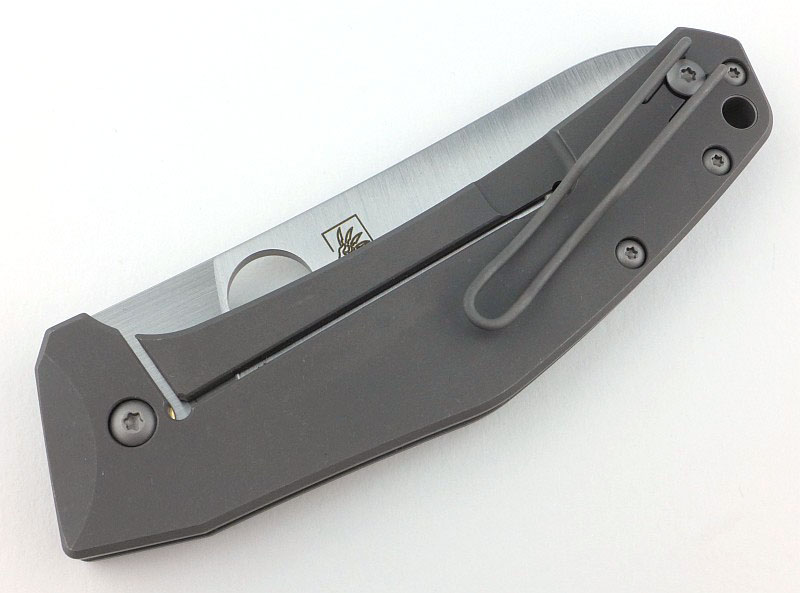
The gently curving and elegant design is by the Polish custom knifemaker Marcin Slysz.
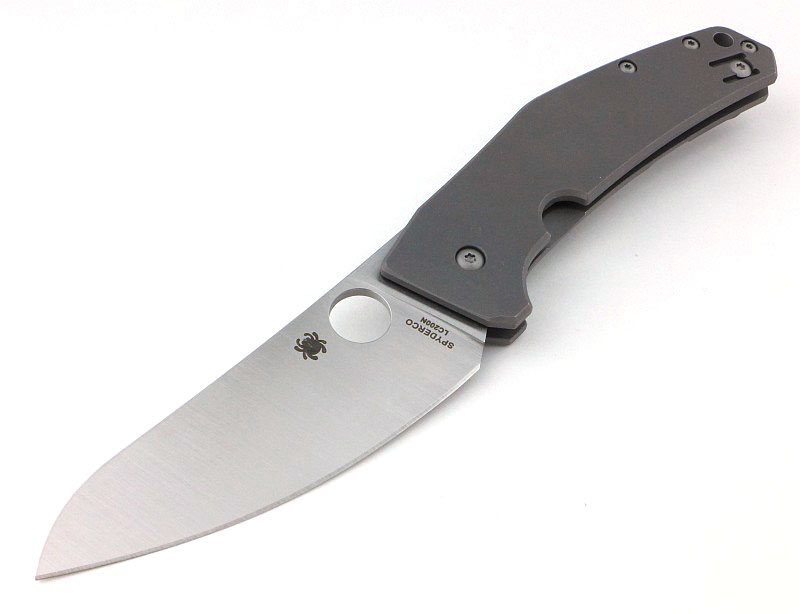
Being a Spyderco, we have a Spyderco wire pocket clip. This can be fitted to either side of the knife for a tip-up carry.
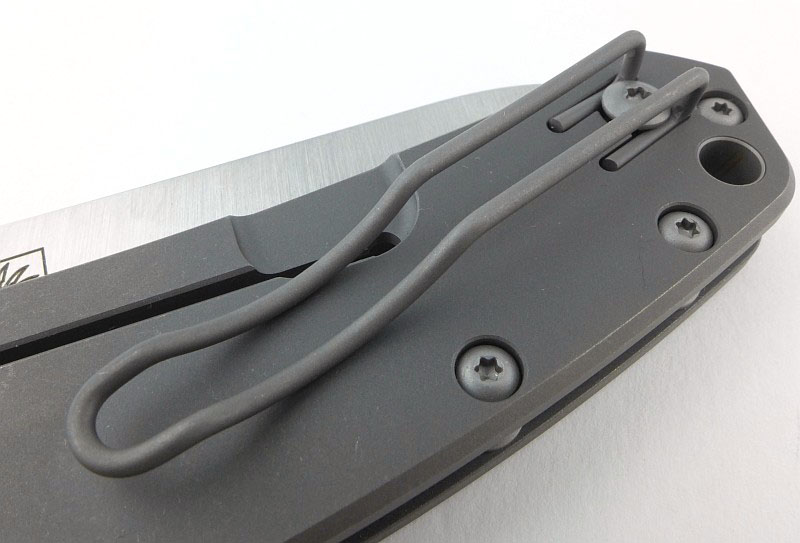
The alternate clip position with blanking screw. If you swap the clip side, you need to swap the screws round as they are different lengths. The Lanyard hole is lined to make it easy to fit cord through both sides of the handle.
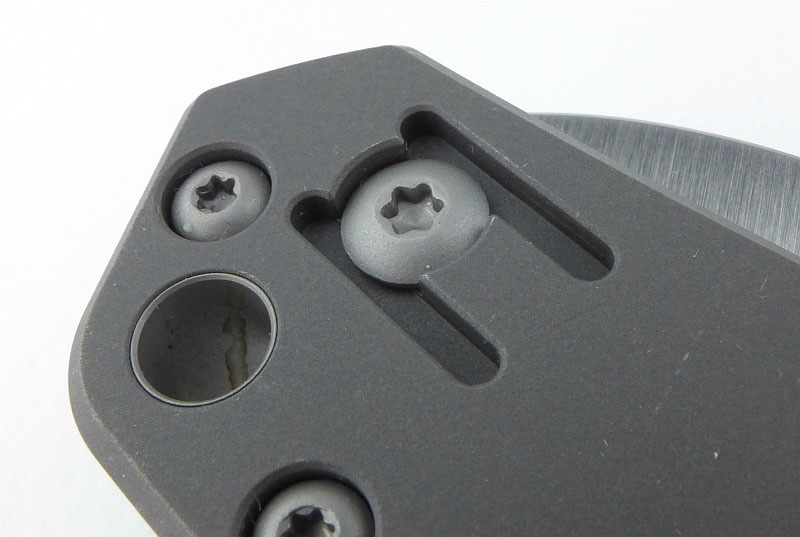
A 12mm opening hole is comfortable to use for right-handers and has a nice cut-out in the handle to give easy access, but as you can see, the reverse of the hole is partially blocked by the lock bar, so this is not ideal for left-handers.
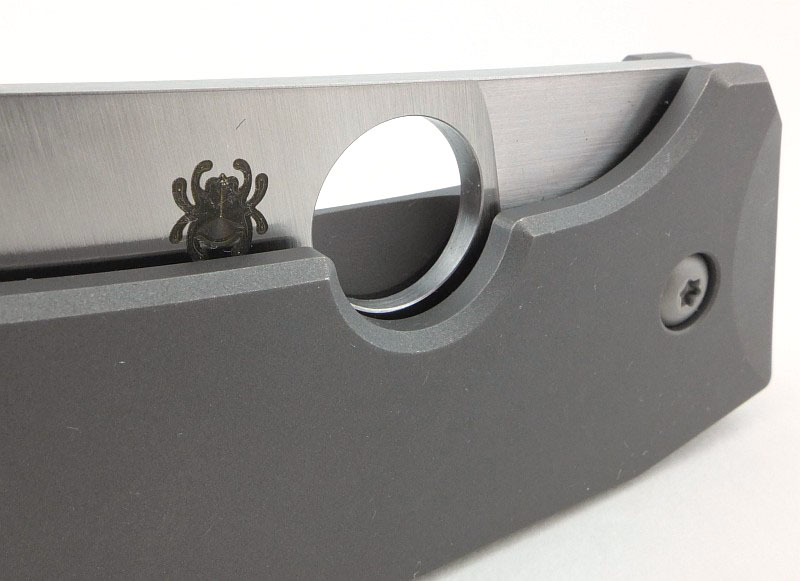
Details ‘make’ designs, and in this example, the finger guard formed by the handle titanium, and the spine of the blade have been positioned such that they line up when the blade is closed, keeping the outline of the closed knife smooth and tidy.
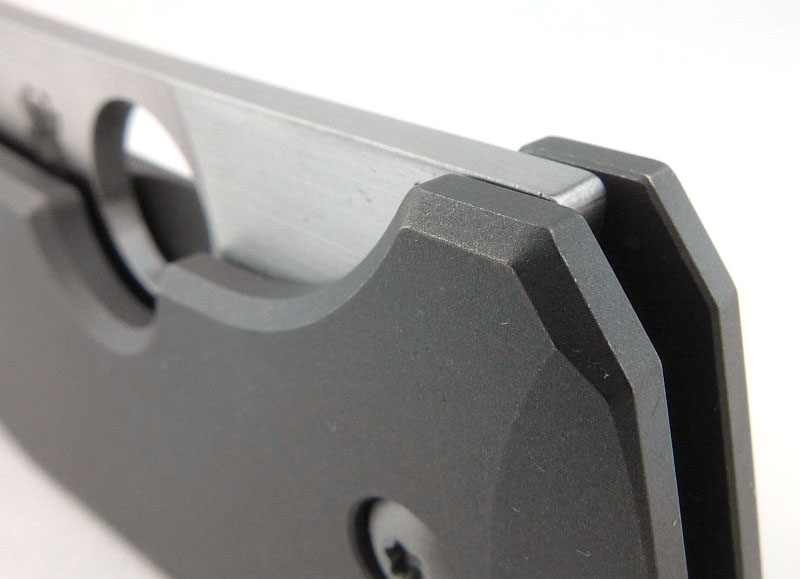
To make the SpydieChef easy to clean, small spacers have been used to give as much access as possible into the handle.
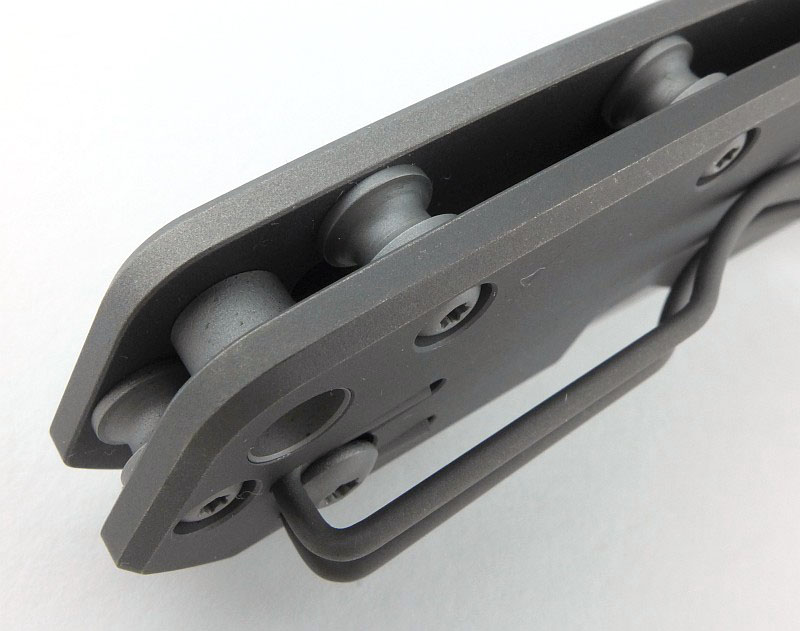
Here I’m showing two specific details of the lock-bar spring, the first is the thinning of the handle scale to reduce the spring tension, and the second is the stress-reducer hole drilled at the end of the lock-bar slot.
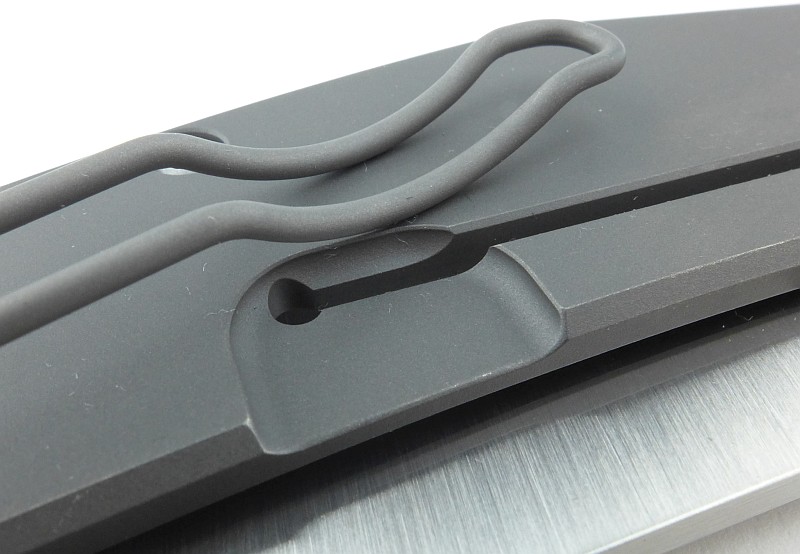
Similarly there is a stress-reducer hole drilled at the corner of the lock-bar cut out in the titanium scale.
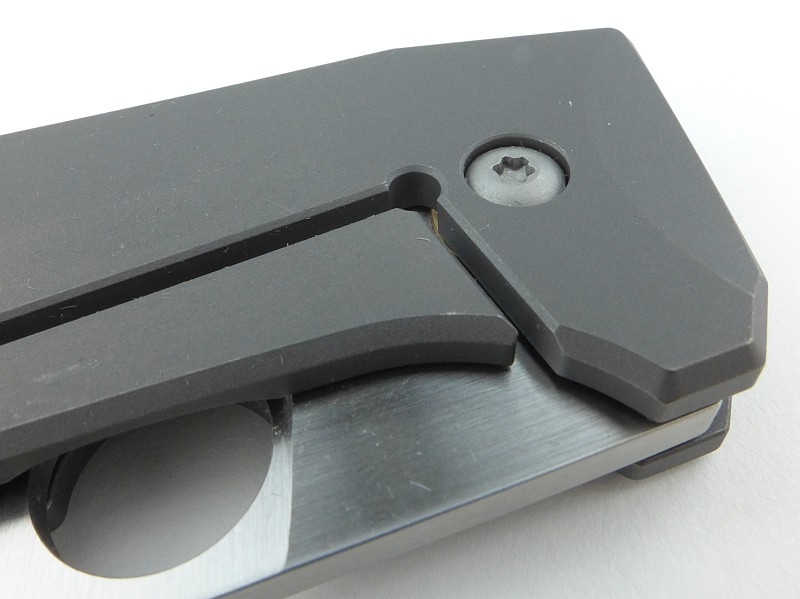
Here the blade is in the closed position sitting against the stop pin. There is also a hint of that phosphor-bronze washer.
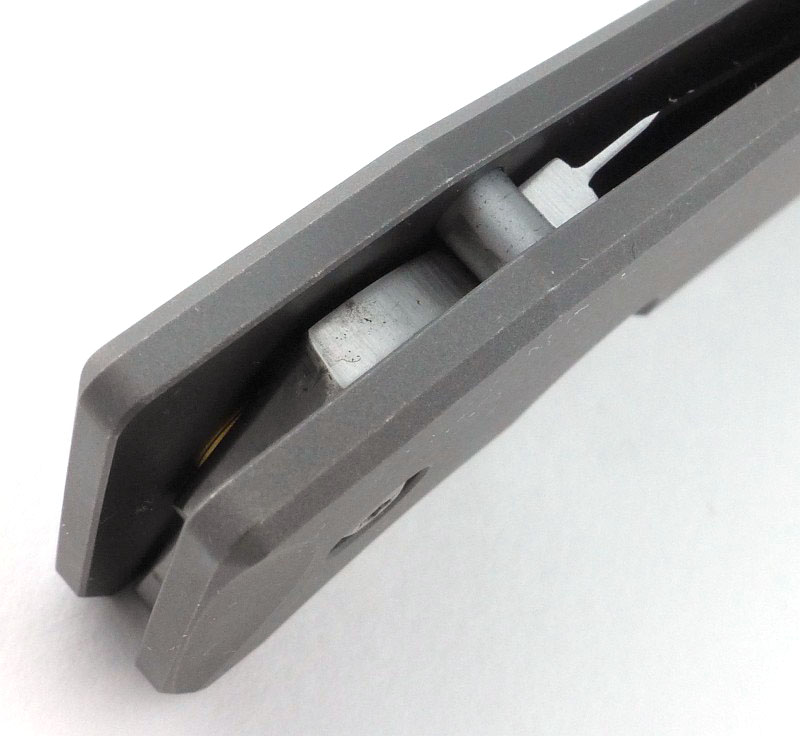
Lock engagement is excellent, with room to move as the lock wears, but with a positive overlap which won’t slip out under pressure or if knocked.
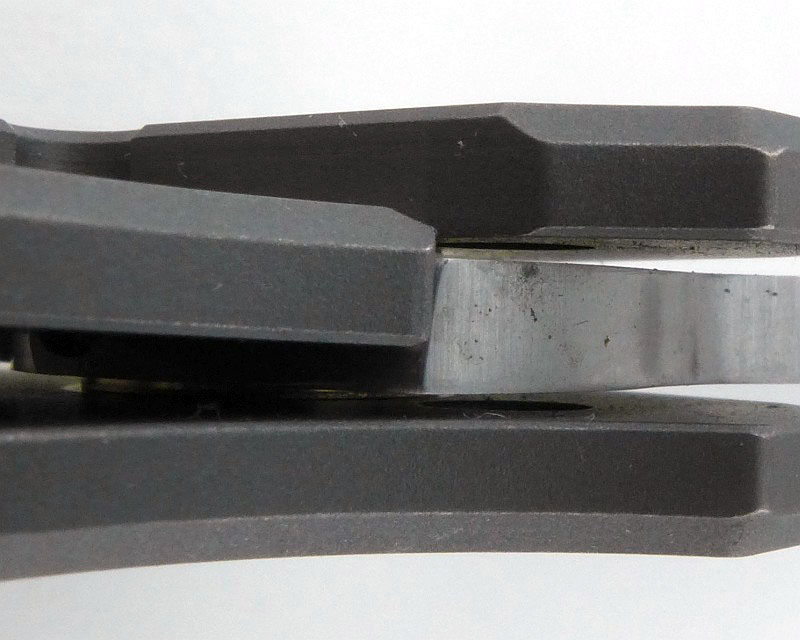
The open blade sitting onto the stop pin.
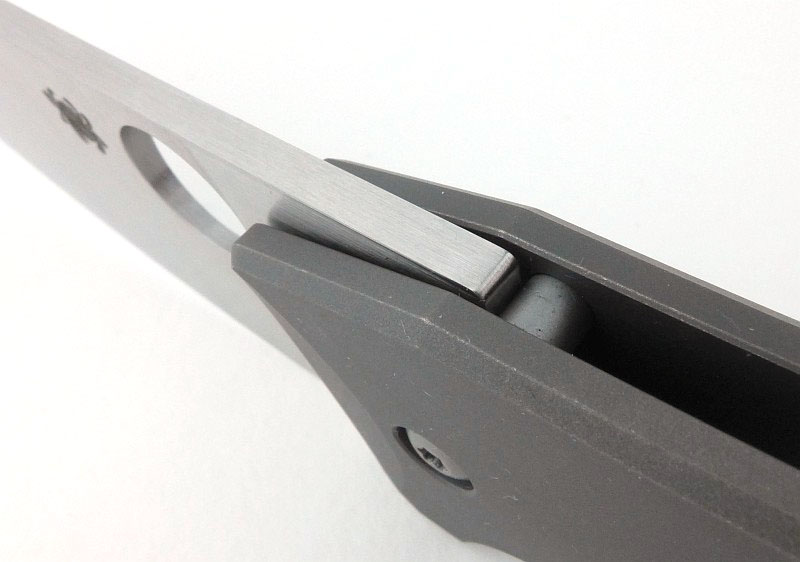
Though compact enough to fit into a folding pocket knife the Marcin Slysz blade design is immediately reminiscent of a kitchen knife. Marcin Slysz’s logo is included on this side of the blade.
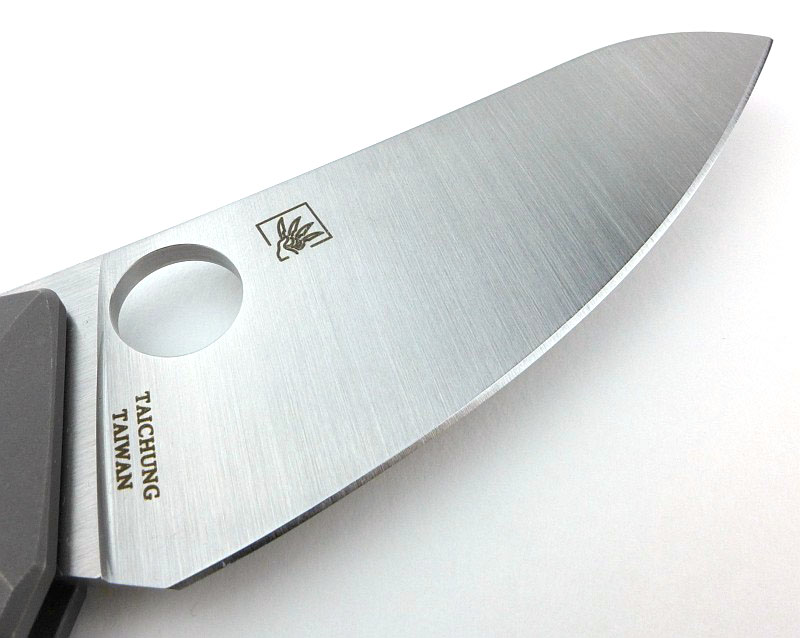
The other side of the blade has the Spyderco branding as well as the steel specification.
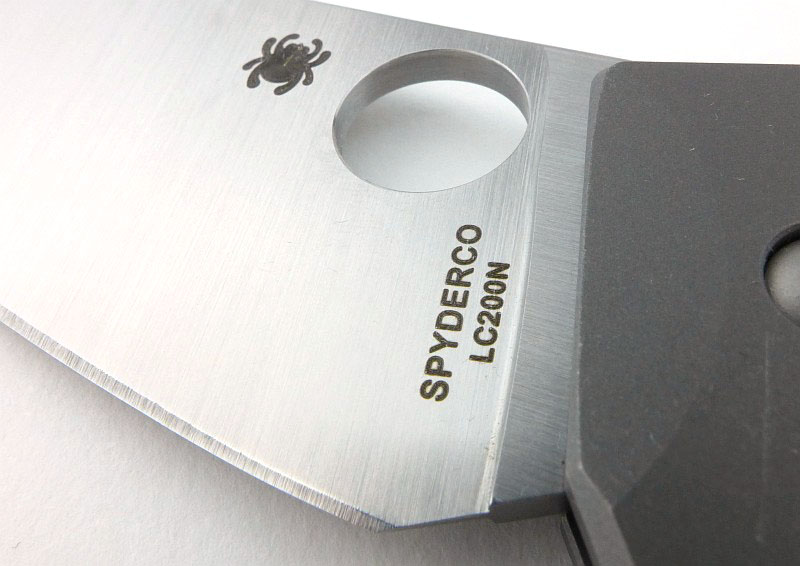
Flowing lines sweep the blade tip nicely into the handles in the folded position.
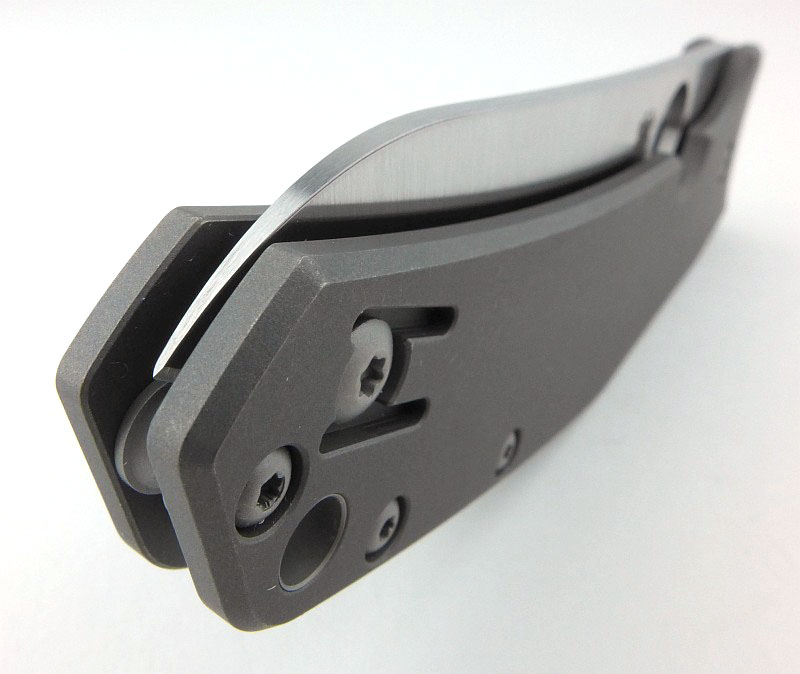
A closer look at the blade tip. Note that the entire blade spine has had the edges eased so they are very slightly radiused and smooth.
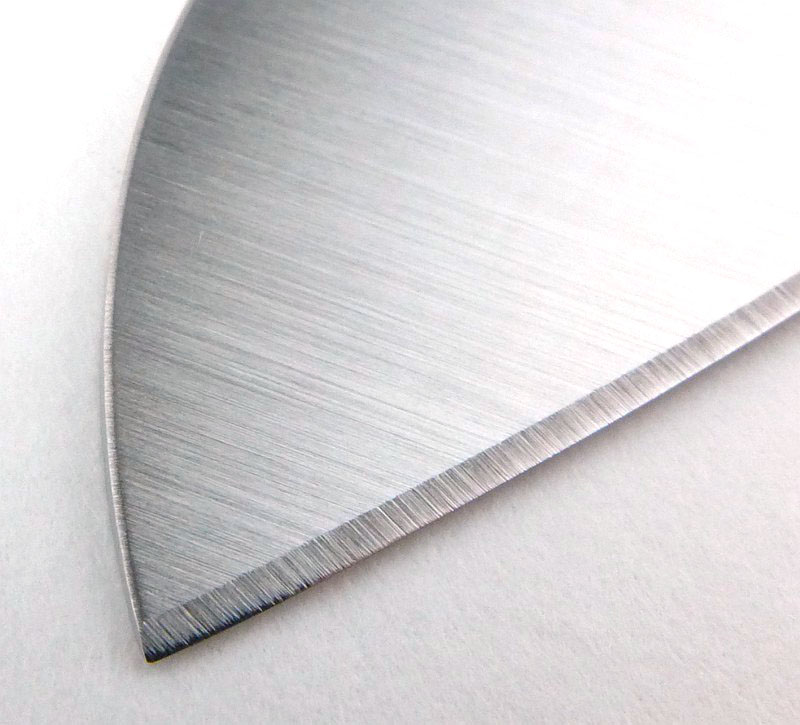
What it is like to use?
We’ve had a good look round this knife, but what really counts is how it is to use and cut with. Take a special purpose knife and make it into a folder and you immediately introduce compromises, so this was always going to be a challenging design to get right. Also considering that the chef’s knife, by the very nature of being taken out of the kitchen and put into your pocket as an EDC blade, will now be used for so much more than just kitchen duties, so some compromises have to be made.
I’ve used other folding kitchen knives, and after considerable use and comparison, I’ve found the only advantage they had over the SpydieChef was a thinner blade. A thinner blade which only gave a slight advantage on a chopping board in a kitchen, and in no other situation when carrying the knife as an EDC blade. The thinner blade always flexed far too much for EDC tasks and become more of a liability than an benefit.
Before we look further at the SpydieChef in use, to give an idea of scale, here it is next to the Fällkniven F1 and a Spyderco UK Pen Knife. It is a very pocketable size knife which is helped by the slim profile, but has enough blade to be useful. Clearly you will struggle to chop large vegetables with this knife, but it is an EDC folder and not a substitute for a full sized Chef’s knife.
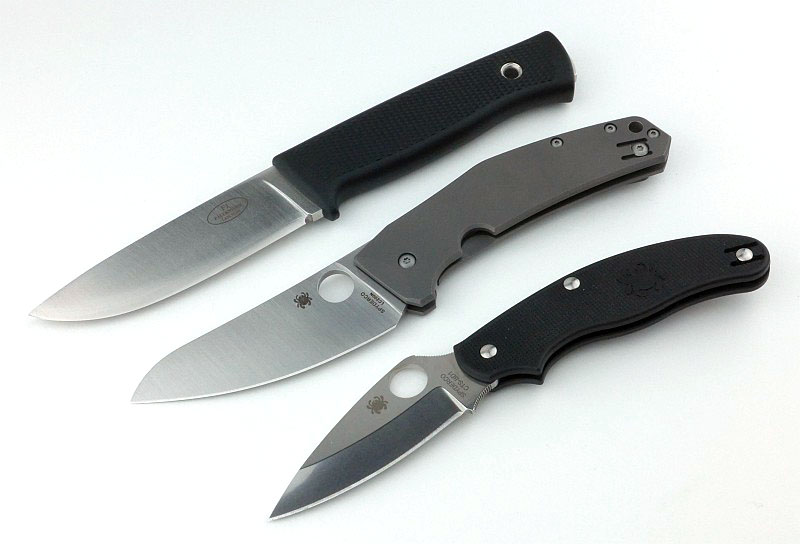
Something I do want to mention is that Spyderco definitely get the blade retention detent resistance right. The reason for mentioning this is that I’ve come across certain knives with integral locks where the detent is far too stiff and should you touch the lock bar when trying to open the blade you have had it, the blade is virtually locked in place – not so with the SpydieChef. The blade is perfectly secure in the closed position, so let’s get that clear, but then regardless of how you hold it, fingers on the lock bar or not, the blade opens with a slight resistance that is easily overcome with the 12mm opening hole. I don’t want to be thinking about how I have to hold a folded knife to open it (beyond the basics of which way the blade swings open), so this is a major factor and over stiff detents on integral locks have ruined otherwise good knives. Spyderco have consistently got this right and in this case I nearly forgot to mention it as I hadn’t noticed any issues or hang-ups opening this knife, so it went out of my mind.
Slim, flat slab handles can often become uncomfortable in use quite quickly, but their low profile makes them easy to carry. However, the curving handle of the SpydieChef does a very good job of resting over your fingers and sitting into your hand in a perfectly comfortable way despite its slim flat profile.
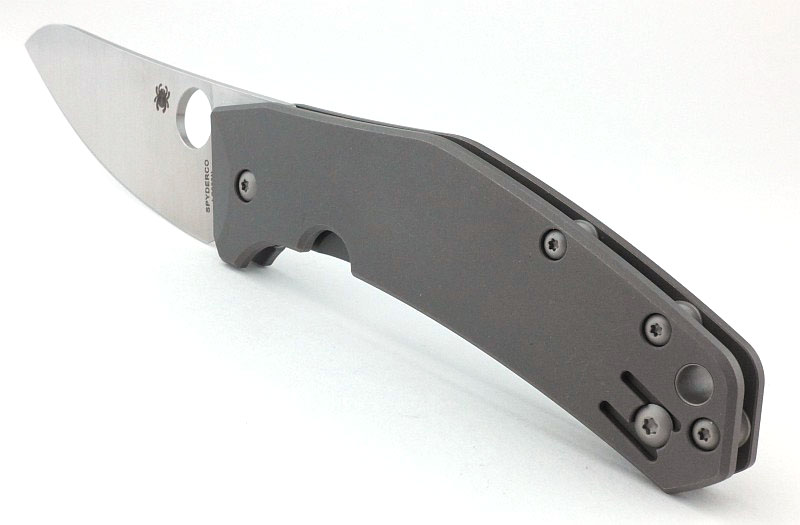
The SpydieChef sitting comfortably in my hand (XL glove size) with my forefinger nestled up to the integral finger guard.
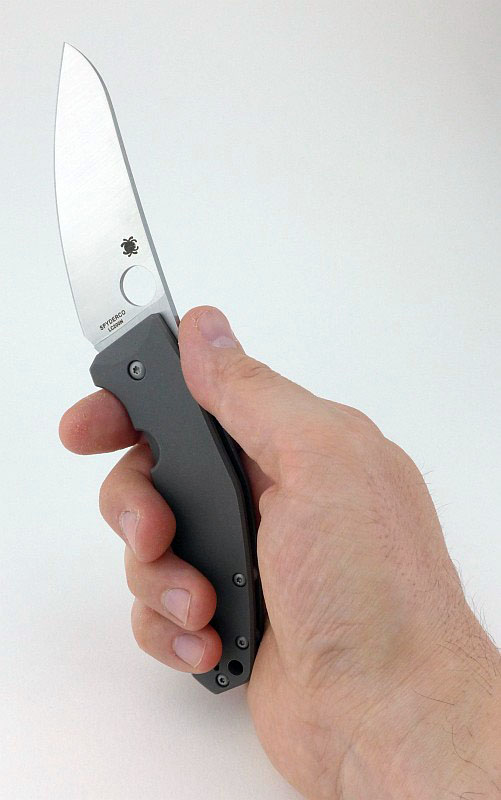
Absolutely crucial for a kitchen knife is it ability to be used cutting down onto a chopping board. This requires clearance for the fingers when the edge is in contact with the board. As well as the clearance, it helps cutting control enormously to have a curved edge that allows you to rock the blade for fine chopping or to apply controlled cutting force to harder foods like nuts while keeping the edge in contact with the board. The geometry of the SpydieChef has this absolutely nailed, and I’ve been chopping away without rapping my knuckles and no food pinging off the board.
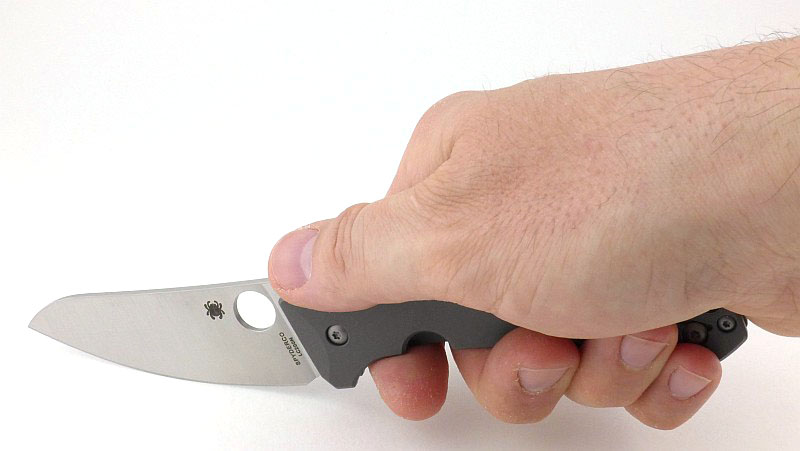
I mentioned it earlier, compared to an actual kitchen knife, the blade is thicker (an EDC compromise) and this does mean that the knife does not fall through firmer and larger vegetables like a thinner blade does. Instead you can get that slight snapping action at the end of the cut, but the full flat grind does a good job of parting the cut, and these crisp chestnut mushrooms which can be quite fragile and break up with wider blades have stayed in nice slices without cracking or other signs of stress.
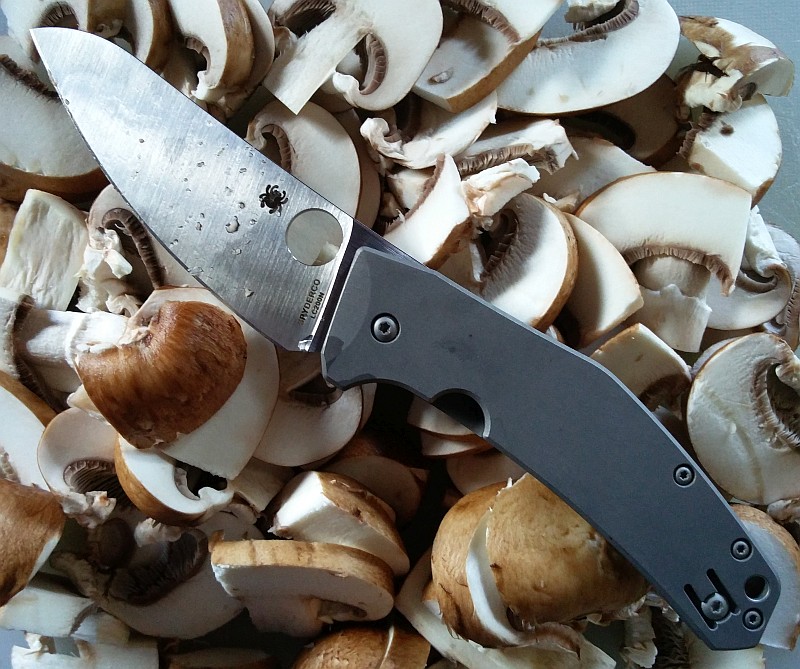
It might not really be much of a challenge for a knife, but the combination of a tough skin and the soft flesh means a less than capable knife can make a real mess of an avocado, but not in this case where the only limit was user skill.
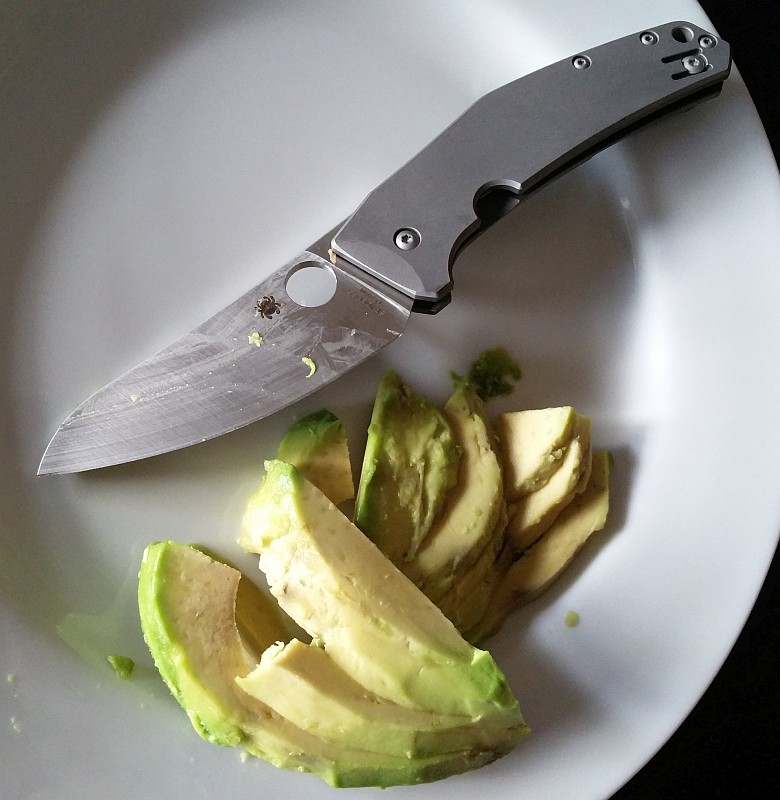
Breakfast is served…
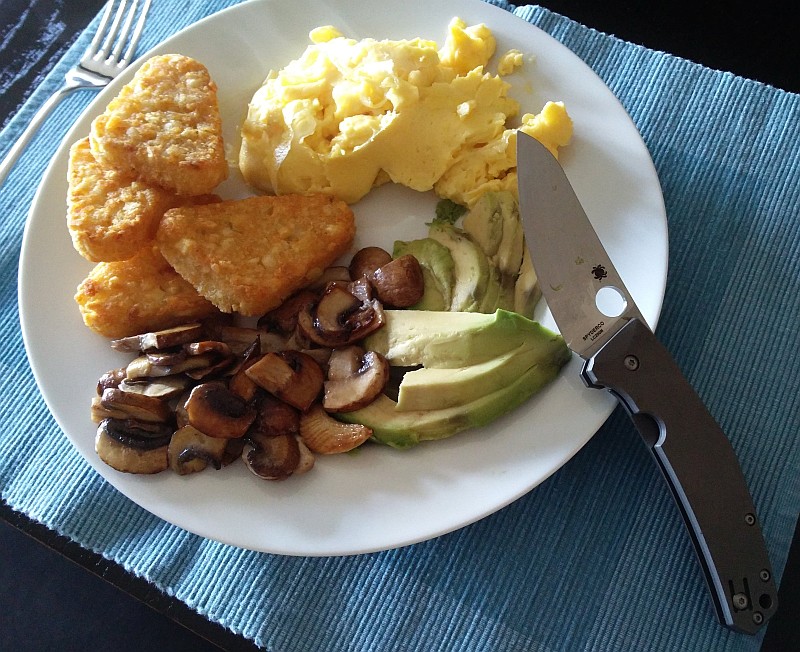
In terms of kitchen capabilities, the fact I can pull this from my pocket and work with it happily, and at the same time not worry about any residues making their way into the handle or pivot, makes this a huge winner for those days when food prep is a big priority; holidays, camping, picnics, workplaces and more.
With the ultra-corrosion-resistant nitrogen-based LC200N blade, phosphor bronze washers and titanium handle, the SpydieChef doesn’t mind getting dirty, being exposed to corrosive juices and otherwise being left to marinade with the rest of the cooking. You can even pop it in the dishwasher for cleanup afterwards.
Where the SpydieChef gives you extra, is that it is capable of so much more than the light cutting duties of just food prep. The blade is thick enough for you to really grab a handful of that handle and put it to some hard work on tougher materials (and the LC200N will keep its edge longer than an H1 blade will). Mixing it up between food and non-food use might mean a few washes or wipes in between, but this single knife can do it all.
I’ve always been a fan of the kitchen knife as a general purpose blade and have carried both modified and unmodified chef’s knives into the field, so personally I find the SpydieChef’s style and shape ideal as an EDC blade.
Review Summary
The views expressed in this summary table are from the point of view of the reviewer’s personal use. I am not a member of the armed forces and cannot comment on its use beyond a cutting tool or field/hunting knife.
Something that might be a ‘pro’ for one user can be a ‘con’ for another, so the comments are categorised based on my requirements. You should consider all points and if they could be beneficial to you.
| _______________________________________________ | _______________________________________________ |
| Things I like | What doesn’t work so well for me |
| _______________________________________________ | _______________________________________________ |
| Chef’s knife style blade. | Blade is a little too thick for easy slicing of hard vegetables. |
| Ultra-corrosion-resistant materials. | Cleanup can be a bit fiddly. |
| Good cutting clearance for chopping onto a board. | Not so good for left-handers. |
| Slimline, lightweight and easy to carry. | |
| Ergonomic curved handle. | |
| Ideal detent resistance. |
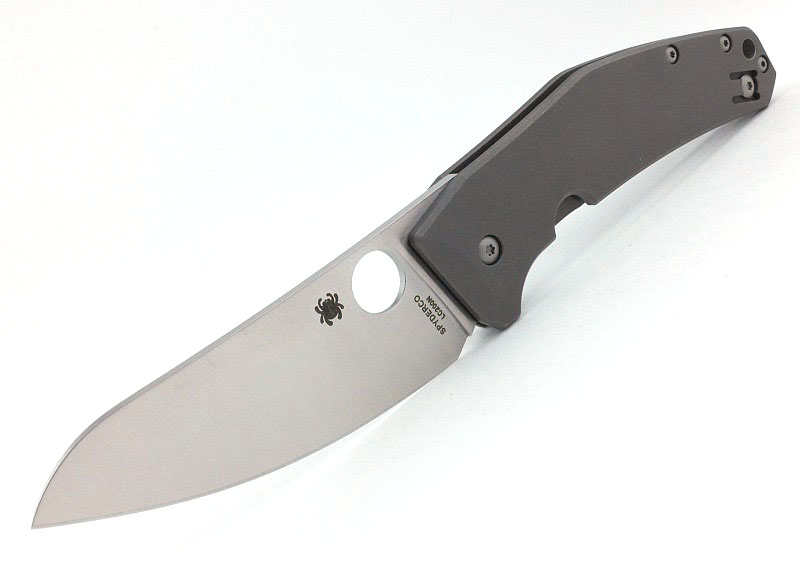
Discussing the Review:
The ideal place to discuss this reviews is on a forum. If you started reading the shorter forum version of the review, but followed the link this full exclusive review, please return to that forum to discuss the review there.
If you read the review entirely on Tactical Reviews, please consider one of the following to join in any discussion.
EdgeMatters – Sponsored Reviews (UK based Forum for Knife Makers and Collectors)
BladeForums – Knife Reviews (US based Forum for Knife Discussion)
CandlePowerForums – Knife Reviews Section (Largest and Friendliest Flashlight Community Forum)
